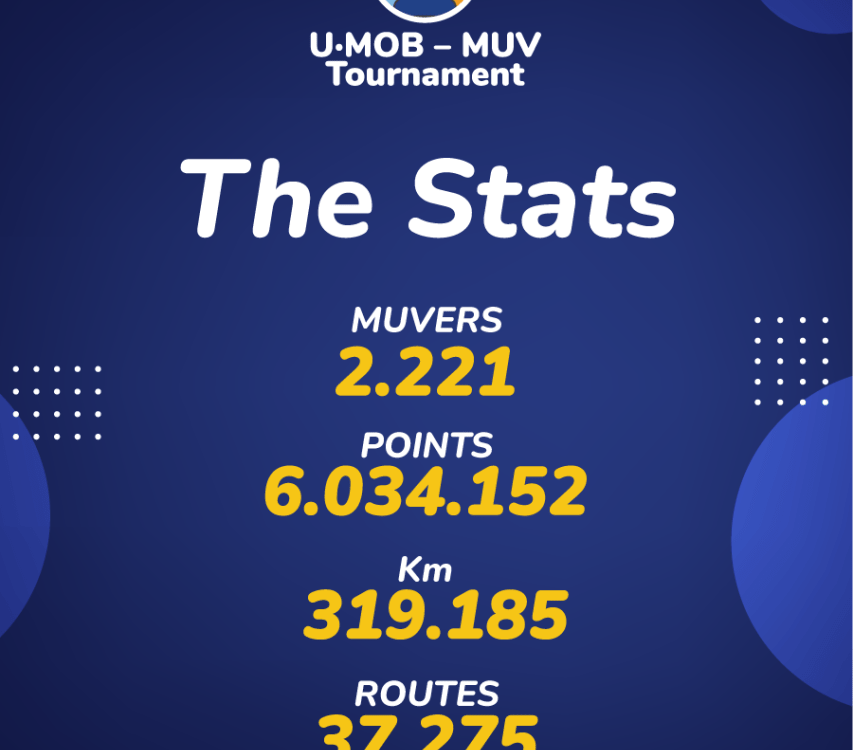- Have any questions?
- info@u-mob.eu
The U-MOB network fighting the dark side of the economic recovery in cities

U-MOB on UMH Sostenible
18 October, 2017
The Catalogue of Mobility Best Practices in Universities of U-MOB has been already published
30 April, 2018European cities will host 80% of Europeans by 2020. Cities are the economic engines of Europe, and after the intense effects suffered after the global crisis -or big fraud-, most have recovered their growth path with varying intensity. The economic development followed by many of these cities intensifies the use of private fuel-based vehicles, which is expected to keep increasing along with the economic recovery. Citizens are severely exposed to a decline in the quality of the air they breathe while they suffer more intense traffic jams and noise. On the dark side of the recovering cities there is a negative effect on health problems, congestion and climate change.
The power of a mobility plan
However, the increasing resources of treasuries let new leeway to allocate resources to counter the downsides of recovery. As mobility needs increase, territorial authorities can take different courses of action, that we could summarize in three:
1. Let things just happen
2. Keep planning as usual, or o
3. Foster a more sustainable planning.
Municipalities often come to our minds first, but planning in cities is increasingly affected by other major actors. City places receiving many travelers and commuters such as universities, big companies, ports, stadiums or malls can also make a difference.
Leading universities in Europe and North America have increased their awareness on their impact on CO2 emissions and other hazardous particles due to staff and students commuting, and they have understood their potential for changing mobility planning and the behavior of their university community. Indeed, some of them are developing a new professional figure: the sustainable mobility manager.
Although many universities have been working on sustainability issues, differences in the institutionalization of mobility planning remain wide between and within countries. There are many universities that still do not really care about managing their mobility. To make things worse, the successful practices applied by universities for promoting sustainable mobility often go unnoticed by other universities. In the best case scenario, only state level networks of universities get to share these actions. Consolidating this professional figure is even tougher when no structured training materials are available for university managers deciding to do something about mobility planning.
The U-MOB LIFE Network
The new European Network of Universities for Sustainable Mobility was officially launched in Barcelona in March 2017, supported by EU funding after the LIFE Programme. This network enables the transfer of knowledge and good practices between mobility managers from different universities across the whole continent, and the initiative was warmly welcomed, with more than 50 universities adhered so far.
The members of the Network will have access to an online training course for sustainable mobility managers, as well as to a catalogue of best practices on sustainable mobility from the campus perspective. Less experienced universities will be able to integrate the knowledge treasured by long-established sustainable mobility managers and transfer some of the most successful practices applied throughout Europe. Universities will be capable of making a difference in planning for sustainable mobility within their urban areas, causing positive impacts such as easing traffic congestion, reducing the emission of polluting gases and noise, and decreasing risks for health.
Universities aware of their impact to the dark side of economic recovery in cities are warmly invited to join and take advantage of the shared materials of this new Network. Also, following the success of the first edition in the Autonomous University of Barcelona, worldwide universities are invited to participate in the II Conference on Sustainable Mobility at Universities that will be hosted by the Polytechnic University of Cracow in early 2019.
Mario Sánchez Brox,
project manager of Fundación Equipo Humano (U-MOB’s partner)



